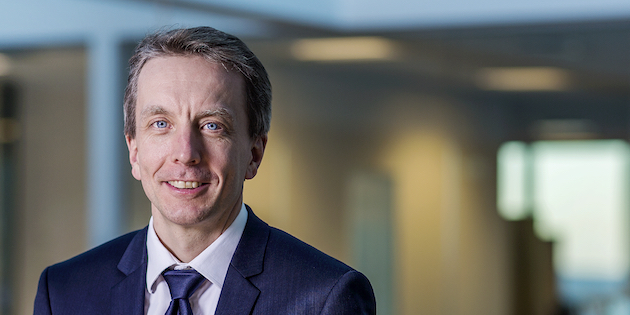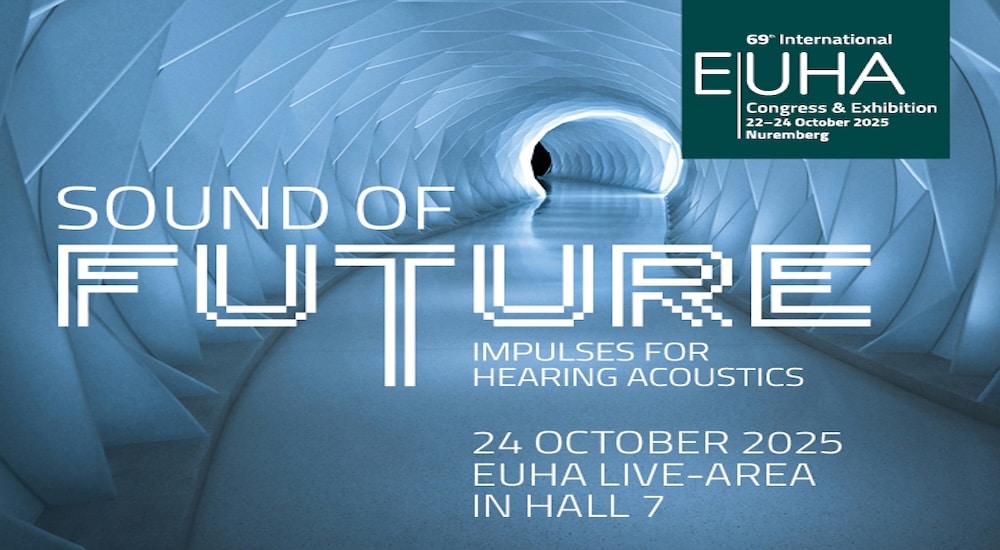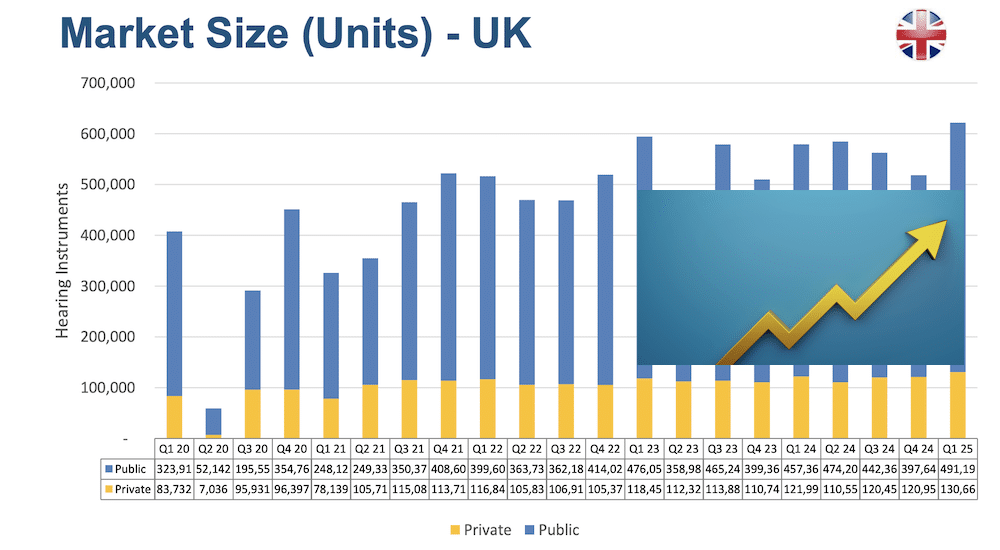Covid, cybercrime, Brexit, and More – Demant supremo Søren Nielsen interviewed
industry
This May’s Demant forecast of 24 to 28% revenue growth in 2021 reflects a healthy hearing industry, a glad tiding underlined in this AWN interview with the group’s CEO and President Søren Nielsen.

AWN: Demant has remained positive throughout the adversities of the last year or so, one them a major cybercrime attack, so should anyone have been surprised at this upbeat May 2021 interim management statement?
Søren Nielsen: We are cautious people always, and trying to deal with realities, but it is a company in good shape. Across our many different businesses these days, we are performing well, and also better than expected, and therefore have come out with an upgrade to our initial expectations for the year, and that relates to a better than anticipated—even though we were optimistic—recovery of the hearing healthcare market as we see vaccinations being rolled out across the world.
Our main audience and user group are senior citizens and people at risk for severe effects of Corona, and it helps a lot for their self-confidence and belief in ability to go out and see other people that have been vaccinated, and that happens across most well developed countries, Europe, Asia-Pacific, and North America.
AWN: The hearing health industry has faced financial and logistical difficulties during a global pandemic that has created important practical problems for users, and somewhat revolutionised deliver of therapy and hardware. What does it say about the robustness of this business to be able to report a genuine recovery from what was such a daunting initial impact in 2020?
Søren Nielsen: First of all, we are dealing with a chronical disease that has no correlation to Corona, meaning that if you miss out in a period, the user is still out there. So it’s different to selling hotels and ice-creams. It is a chronical disease and the demand is, in reality, steady and of a nature related to how many senior citizens live in the world, so even if there are restrictions and things that prevent this from taking place, there will be a recovery and also a significant element of pent-up demand, so when the clinic opens again there will be more users than normal coming in to seek help.
Cochlear implants
AWN: Cochlear implant sales have been slowed right down because of the impossibility of hospitalisation during the pandemic; how long is it going to take for that business to catch up?
Søren Nielsen: That’s a bit more unclear at the current stage. I think there are many chronical diseases unfortunately that patients have not even been diagnosed, and where waiting lists are quite long, and for some it even starts with going to you GP, or your ENT doctor in our case. A profound hearing loss doesn’t come overnight; it’s something where you grow out of your hearing aid and become a candidate for a cochlear implant, or you are born with it. Among adults and seniors it can take some time and we are a bit cautious in predicting that.
On the other hand, there is also a pent-up demand, and whether or not that will be released immediately or will take longer has very much to do with extra allocations, so that you work overtime or utilise the operating theatre more hours a day in order to catch up on watiing lists, but elective surgeries such as a CI compete with artificial new knee or new hips or other similar chronical diseases where again we are not in control. Private markets of course very quickly pick it up as the store reopens.
Oticon More hearing aid
AWN: The Oticon More product is something of a bold technological turnaround in the hearing aid story, and the tech narrative there is adventurous and fairly convincing: are initial figures on More suggesting any ground gained for Oticon?
Søren Nielsen: Absolutely, Oticon More has set a new bar for how much and how well you can perform with a hearing aid, in particular in the more diffiult listening situations where more people are talking, which is a classical, very difficult, and hardworking situation for hearing-impaired people, you know, noisy restaurants, around the dinner table where everybody is talking east and west, and the product, due to its remarkable artificial intelligence, pre-trained deep neural network has this ability really to know what’s going on around it and assist the user in being able to have access to all and more important sounds than conventional hearing aid technology, and that is definitely why end users immediately confirm a much better performance than they have ever seen before.
AWN: What about orders? Are they good?
Søren Nielsen: Absolutely. We have seen a very good and strong pick-up and we have seen also a strong conversion from other products of our own, so there’s no doubt also if you ask out and about in the audiological community, I think nobody would disagree that Oticon More right now is the strongest hearing concept available.
Brexit
AWN: Any impact of Brexit on UK distribution of Demant product should now be making itself felt. How is that situation looking? Has Brexit been good, bad, or inconsequential for Demant?
Søren Nielsen: You know, trade restrictions and customs is never good; it’s much easier if you can just ship your parcels directly to a store or even an end user and be sure it arrives in time, and we have definitely felt some hiccups. But we have a pretty good local operation, a solid stock, and local people to do the redistribution you could say, so therefore we have not felt the pain, our customers have not felt it, but it takes an extra effort and we are definitely not fundamentally in favour of Brexit; we think the world was easier before and we would have liked it to stay as it was, but now that it’s there we of course learn how to deal with it.
AWN: So will Brexit be headache long-term?
Søren Nielsen: We are used to dealing in a global world where you cannot just expect that free goods can move, that’s like US or Canada. Now we have one more country in that basket. I’m just saying that, everything else equal, European companies like Demant in Denmark have benefited tremendously from free trade in the EU and therefore we cannot be happy about the UK stepping out of the European Union.
Challenges ahead
AWN: New virus variants and more Covid restrictions are obvious Covid challenges still out there. How do you see this challenge going forward from here?
Søren Nielsen: I am relatively optimistic. I think that despite all the predictions that a number of the vaccines would not handle mutations and so on, the world has grown such an enormous capacity in producing vaccines that even if you need an adjusted one and a new shot again in October, I think we will do all we know to handle it. In the UK, US, Denmark, the probelm has not been the ability to vaccinate society; it has been the production capacity of enough vaccines, and the world will see eight or ten vaccines coming out during the next twelve months, so I am a strong believer that science will help get the coronavirus under control so that societies, at least on a local level _ which is what is relevant for our industry—will normalise and we will not see a new lockdown in the second half,… but of course I don’t know.
AWN: What are the other clear challenges for the hearing market in the next few years?
Søren Nielsen: To continue to make better and better products through innovation in a highly competitive market. There are five big players in the hearing aid space that all want to grow and do the best, so it’s a good competitive situation, but I don’t see any kind of underlying negative trends or anything; it’s who does best that will do best.
The fundamentals of the industry are very healthy; corona has definitely proven that. The existing model has been questioned, if not criticised: “it’s inefficient, why do we have hearing care specialists? Can’t we just fit all hearing aids from a centralised remote care centre?” But I think we have been strongly confirmed during the pandemic that what really matters for hearing-impaired users is to see a specialist that can help and guide through unknown territory and help with a good high-quality diagnosis, good high-quality counselling, and a good high-quality fitting with a strong outcome. I’m a strong believer in the existing model, so I don’t see a lot of changes on the horizon.
AWN: Choose between a pandemic and a penetrating cyberattack; which would you prefer to have to deal with?
Søren Nielsen: Ah! Those are two bad ones! The cyberattack, by its nature, is to some extent also something you can work on yourself. It’s quicker to come out of; on the other hand your competitors benefit from your weakness, whereas Corona is long-lasting and I don’t think it’s good for the end user. As professional businesses, it is at least equal to all of us, so it’s still the best people and the best companies that perform best. I don’t think there is a preference; I don’t like either of them.
Source: Søren Nielsen, Demant


